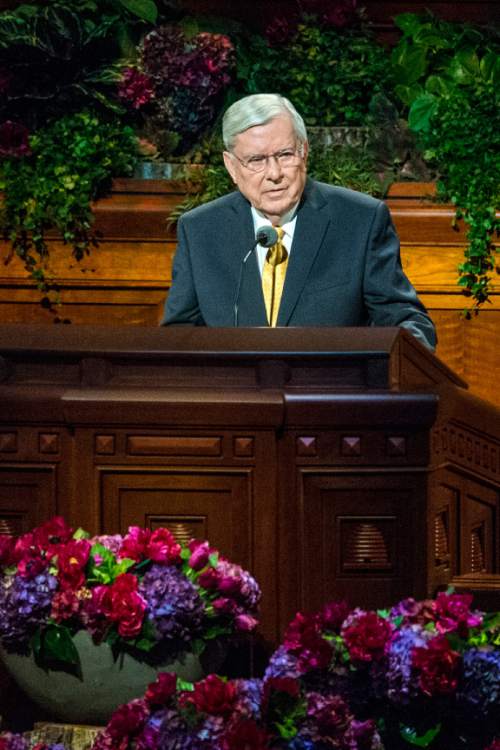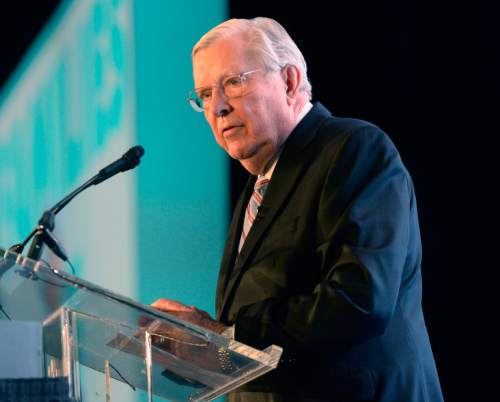This is an archived article that was published on sltrib.com in 2016, and information in the article may be outdated. It is provided only for personal research purposes and may not be reprinted.
Some Mormons have been grappling with doubts after discovering controversial elements from their history, many of which they learned for the first time via the Internet.
In response, The Church of Jesus Christ of Latter-day Saints published a series of essays on sometimes-thorny theological and historical issues — from polygamy to priesthood, Mother in Heaven to Mountain Meadows.
Since then, LDS Church authorities have been promising to integrate the essays into routine religious instruction for high school and college students, along with rank-and-file members.
Now comes a Mormon higher-up who says emphatically it's time to get serious about that effort.
A week ago, apostle M. Russell Ballard addressed the nature of doubt and the role of the essays during a speech to LDS educators.
Mormon blogger Jana Riess summarized some of the apostle's instructions to teachers in the Church Educational System.
"It was only a generation ago that our young people's access to information about our history, doctrine and practices was basically limited to materials printed by the church," Riess quotes Ballard as saying. " ... Our curriculum at that time, though well-meaning, did not prepare students for today, a day when students have instant access to virtually everything about the church from every possible point of view."
That needs to change, he said.
"Gone are the days when a student asked an honest question and the teacher responded, 'Don't worry about it.' Gone are the days when a student raised a sincere concern and a teacher bore his or her testimony as a response intended to avoid the issue."
No more, Ballard said, no matter how sticky the issue.
"To name a few such topics that are less known or controversial, I'm talking about polygamy. Of seer stones. Different accounts of the [church founder Joseph Smith's] First Vision. The process of translation of the Book of Mormon. Of the Book of Abraham. Gender issues. Race and the priesthood. Or a Heavenly Mother."
Ballard told Mormon educators not to dismiss questions or feel like they have to have all the answers.
"It is perfectly all right to say, 'I do not know,' " he advised. "However, once that is said, you have the responsibility to find the best answers to the thoughtful questions your students ask."
The veteran LDS apostle introduced the church's new plan for seminaries, known as "Doctrinal Mastery."
Recognizing that students might seek out their religious teachers with their questions, Ballard urged instructors to study the 11 Gospel Topics essays that provide "balanced and reliable interpretations of the facts" about these topics.
"It is important that you know the content in these essays," he said, "like you know the back of your hand."
At this point, Riess writes, she was "cheering."
Peggy Fletcher Stack







